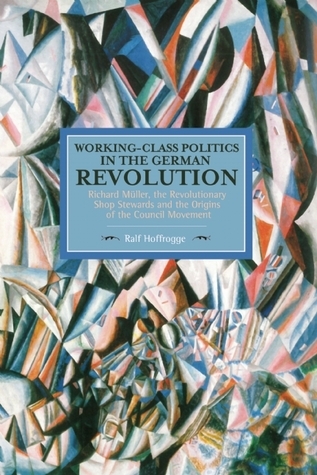
div>"Hoffrogge has done historians of the German Revolution and the Weimar Republic a valuable service by reconstructing the trajectory of a key figure in the revolution (and one of its most important early historians), and by enabling us to see these events through the different focus afforded by a leading protagonist of the workers’ councils" —Andrew G. Bonnell, Labour History, Australia “In this study of Richard Müller’s role in the German Revolution, Ralf Hoffrogge sheds light on one of the most important, and yet understudied, aspects of the the role of revolutionary shop stewards and workers’ councils in the overthrow of the old order and the establishment of the new one…[T]his work provides a much-needed perspective on the German upheaval from the bottom up. It places Richard Müller’s long neglected role in the revolution at center stage, and reminds us of the revolutionary promise that was the German Revolution." —William Smalldone, Against the Current “Hoffrogge’s biography differs from those written about revolutionary icons like Liebknecht or Luxemburg for very practical reasons. The latter were from middle-class backgrounds and used to writing letters and articles offering biographers insights into their political but also private lives. An ordinary worker like Müller did not leave comparable records…Hoffrogge’s book is a first-rate invitation to think about a link between Richard Müller and the Revolutionary Shop Stewards and today’s still unfocused struggles against imperialist wars and capitalist exploitation” —Ingo Schmidt, WorkingUSA "The merit of Hoffrogge’s contribution is a capacity to translate his extensive research into a wide-ranging historical analysis and narrative of the role of the Revolutionary Shop Stewards and Richard Müller. " —Dario Azzellini "Ralf Hoffrogge has authored an invaluable addition to the literature of German radicalism by detailing the life of one of the key leaders of the Revolutionary Shop Stewards." —William A. Pelz "Ralf Hoffrogge ... explores the complicated relationship between the Stewards and the various socialist political parties with great skill and discusses the emergence of a new kind of socialism amongst Müller and his colleagues, which did not focus on state power and centralization but rather on grassroots democracy and workers’ control, sometimes known as council communism." —Dick Geary "This study deserves special consideration because it addresses two of the main puzzles of modern German how did a supposedly strong state collapse in 1917 and 1918, and how did the SPD subsequently assume power? Already in the 1920s, Arthur Rosenberg pointed out that the Social Democrats followed a dual tactic of propagating but also preventing revolution. By clarifying the roles played in all this by Müller and the shop stewards, Hoffrogge has moved the discussion forward, showing the way in which revolutionary unrest spread and forced the Social Democrats into a much more active role than they had previously adopted." – Central European History